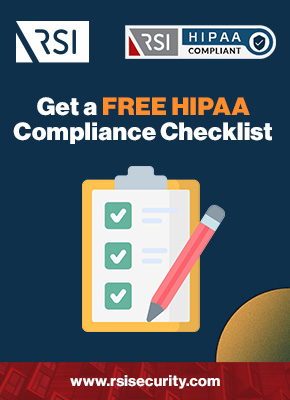HIPAA is the preeminent regulatory standard governing the use and transmission of confidential patient information. Nearly every single entity involved in the healthcare industry—directly or tangentially—needs to comply with the HIPAA guidelines for healthcare professionals. Unfortunately, the various rules and requirements that dictate the HIPAA compliance guidelines can get cumbersome to navigate for organizations both small and large.
Understanding HIPAA guidelines for Healthcare Professionals
Since its inception, there have been multiple changes to the HIPAA regulations—the HITECH act of 2009 being one of the most recent and influential ones. The Department of Health and Human Services (HHS) and the Office for Civil Rights (OCR) have jointly amended HIPAA over the years, adding and enforcing various ‘rules’ to protect the privacy, security, and integrity of patient information.
Healthcare organizations are required to comply with these rules to not only ensure the safe use of patient health information (PHI) but also avoid hefty penalties due to potential HIPAA violations. Whether you intend to ensure HIPAA compliance yourself or enlist professional help, it’s highly advisable to educate yourself on the various facets of HIPAA and its scope, especially regarding:
- What is HIPAA?
- What does PHI Include?
- Who needs to be HIPAA compliant?
- What are the four main HIPAA Rules?
What is HIPAA?
The Health Insurance Portability & Accountability Act (HIPAA) of 1996 was enacted to ensure seamless health coverage for American citizens and establish regulatory standards for the usage and sharing of confidential patient information (i.e., Patient Health Information or PHI).
Any entity that handles, either directly or indirectly, PHI is required to abide by the regulations and standards set forth in HIPAA’s various rules. With the introduction of the Health Information Technology for Economic and Clinical Health (HITECH) Act, HIPAA also covers electronic PHI (ePHI), and the stipulated protections must be applied regardless of the data’s origin.
Through the operationalization of the privacy and security rules of the act, HIPAA provides standards for the use of technology and security safeguards to be used to adequately protect confidential health information.
Download Our Complete Guide to Navigating Healthcare Compliance Whitepaper
What Does PHI Include?
PHI basically constitutes any health information—physical or electronic—that can be used to successfully identify that patient. Broadly, any data that could be considered personally identifiable information (PII) outside healthcare purposes should be regarded as PHI within the sector and related activity. Adopting this mentality will help your organization adhere to HIPAA stipulations.
A potential misconception about HIPAA is that it exclusively pertains to medical details. However, because any the regulation is designed to secure all relevant data that can identify someone as the patient in question, HIPAA extends to numerous activities, purposes, individuals, and third parties outside of strictly medical activity (e.g., insurance and payment processors).
For example, health records, details of physician visits, medical bills, payment information, privileged communication with physicians are all covered under the regulation.
Request a Free Consultation
Additional PHI Categories
Some other categories of personally identifiable information (PII) that are part of medical records and other healthcare documents are:
- Geographical details of patients
- Birthdate excluding year of birth
- Phone numbers
- Email addresses
- Social security numbers
- Health plan details
- IP addresses
- Biometric data
Healthcare organizations store and process large amounts of PHI and PII in their daily transactions and are unilaterally covered under HIPAA’s data protection guidelines. But even entities that indirectly come into contact with PHI are governed by the same rules and regulations.

Who needs to be HIPAA compliant?
HIPAA aims to protect the sensitive and confidential health information of hundreds of millions of U.S. patients. However, due to the highly damaging consequences of a potential breach, HIPAA mandates that all covered entities (CEs) and their business associates (BAs) abide by the HIPAA guidelines while storing and sharing any identifiable patient information.
Covered Entities
The U.S. Department of Health & Human Services (HHS) defines “covered entities” (CEs) as belonging to any one of the following categories:
- Health plans
- Health care clearinghouses
- Health care providers
Health plans are the payers or insurance companies that are in the business of regular transmission of patient billing and medical info to numerous providers and other vendors. From HMOs, health maintenance companies, and company health plans to Medicare and Medicaid, every health insurance payer is covered under HIPAA privacy rules.
Health care clearinghouses are the entities acting as intermediaries between different healthcare organizations, processing health care information received from one entity and sharing it in an industry-standard format with another one.
Finally, health care providers include a wide range of caregivers that capture patient data in terms of medical records, doctor-patient interactions, and other demographic information. Hospitals, clinics, independent physicians, diagnostic labs, pharmacies, and dentists serve as more commonly understood examples. Generally, if you provide services covered under an individual’s health insurance, you should take steps to prevent HIPAA non-compliance.
If you’re operating as any of the above, you’re automatically bound by HIPAA’s security and privacy standards and need to ensure your business processes are operating in a HIPAA-compliant environment.
Who, then, is considered a business associate (BA)?
Business Associates
According to the HHS, business associates include any vendor or subcontractors that have access to PHI, irrespective of whether the information is viewable by them or not. Covered entities partner with multiple third-party companies while managing their business processes, regularly putting the latter in possession of PHI or ePHI.
BAs can be any of the following:
- Data processing companies
- Data transmission services providers
- Medical transcription services providers
- Data shredding companies
- External auditors, lawyers, and consultants
- Health information exchanges
- Billing companies and answering services
As health plans and providers don’t function alone and need assistance from a myriad of vendors and subcontractors to carry out their day-to-day functions, they need to share PHI with these service providers to enable them to provide data processing, transmission, or validation services. This brings these BAs under the ambit of HIPAA compliance.
If your organization is one of the above-listed categories, then you need to take a look at your HIPAA-compliance processes.
It’s worth noting that the absence of any business associate agreements (BAAs) does not preclude you from HIPAA compliance. Neither does maintaining paper-based records.
The Four Main HIPAA rules
As mentioned above, HIPAA has seen multiple rules established under its scope throughout its existence. These are intended to provide comprehensive PHI protection guidelines to CEs and BAs.
The four major HIPAA rules you should be aware of before establishing or outsourcing your HIPAA compliance program are:
- The Privacy Rule
- The Security Rule
- The Breach Notification Rule
- The Enforcement Rule
HIPAA Privacy Rule
The HIPAA Privacy Rule represents the most fundamental set of guidelines organizations need to comply with. Its primary objective is to establish the conditions under which PHI can be shared or disclosed.
As per the HHS’s Privacy Rule Summary, its most essential requirements are the following:
- Restriction of disclosure – Any covered entity or business associate must not access or disclose PHI unless:
- The subject of the PHI requests for it
- The HHS requests access to it
- One or more of the permitted use criteria are met (e.g., research, public interest, or benefit projects).
- Limitation of disclosure – CEs and BAs must share PHI only to the degree necessary, as laid down in the HHS’s Minimum Necessary Requirement.
The HIPAA Privacy Rule requires healthcare organizations to control who can access PHI and under what conditions. It also provides patients the Right to Access to view their own PHI.

Retention Requirements
Another important stipulation within the Privacy Rule is the HIPAA Retention Requirements, which pertain to the retention of HIPAA medical records and HIPAA-related records by covered entities.
While the rule does not explicitly state any maximum retention period for medical records (as each entity is governed by its respective state laws), it does specify a minimum retention period of six years for all HIPAA-related documents from their creation date.
Challenging Privacy Rule and PHI Scenarios—Mental Health Example
The scope of the HIPAA Privacy Rule also extends to mental health professionals due to its guidelines on the conditions under which confidential patient information can be shared. However, this translates to some specific HIPAA guidelines for mental health professionals.
Mental health therapists may share PHI with people involved in a person’s care if the concerned patient:
- Has agreed to it
- Has not objected to it after being given the opportunity
- Has brought a partner or a parent to treatment to help schedule sessions and pick up prescriptions, thereby showing no objection
- Is unconscious, intoxicated, delirious, experiencing psychosis, or otherwise incapable of making independent decisions
HIPAA Security Rule
While the Privacy Rule includes the protections given to every patient, the standards and requirements for the actual operationalization of these protections are laid out in the Security Rule.
As per the HSS’s Security Rule Summary, there are three categories of requirements that covered entities need to ensure:
- Administrative safeguards – These include overarching controls governing the management of an organization’s security processes, personnel, and approach to risk management.
- Physical safeguards – These refer to the physical controls related to the monitoring, restricting, access to spaces and devices by individuals.
- Technical safeguards – Lastly, these include comprehensive controls focused on cyberthreats posed by wireless networks, servers, and other IT infrastructure.
Implementing adequate cybersecurity solutions encompassing firewalls, network security, cloud security, data encryption, identity & access management, and other elements should be part of every organization’s HIPAA compliance plan.
HIPAA Breach Notification Rule
A HIPAA breach is defined as the unauthorized use, access, or disclosure of PHI under the Privacy Rule that compromises the security and privacy of PHI. The Breach Notification Rule lays down the specific requirements organizations need to fulfill in case a breach happens.
HHS’s Breach Notification Requirements require covered entities to notify the appropriate authorities according to the following conditions:
- Breaches affecting fewer than 500 people – The organization must notify the HHS Secretary and affected individuals within 60 days of the end of the calendar year
- Breaches affecting 500 people or more – Organizations must notify the HHS Secretary and affected individuals within 60 days of discovering the violation. Depending on the scope of the breach, companies may also have to notify a prominent media outlet regarding the occurrence.
Today’s advanced cyberthreats deem it necessary for organizations to proactively prepare against security breaches and implement robust threat detection and risk mitigation practices. In the absence of an efficient communication infrastructure, the post-incident mitigation will most likely regress into a haphazard mess that will do more harm than good.
HIPAA Enforcement Rule
The Office of Civil Rights (OCR), in conjunction with the Department of Justice (DOJ), enforces the fines and penalties related to HIPAA violations. These are stipulated in the HIPAA Enforcement Rule. As per the Rule, the financial penalties organizations are liable to pay are as follows:
- Individual Fines – Individual penalties can range from as low as $100 to as much as $50,000 for offenses committed amid willful neglect without corrective action taken.
- Annual Limits – The total amount of penalties a covered entity may be subject to over a calendar year, including all infractions, cannot exceed $1.5 million.
Owing to the significant financial penalties and the potential irrecoverable damage to your organization’s reputation and your customers’ sensitive data, it’s advisable to get professional help. You can turn to an expert compliance advisory services provider that can assist you in analyzing your security controls, advise corrective action to patch deficiencies, and manage end-to-end compliance requirements for you.
Essential Elements for Effective HIPAA Compliance
The elaborate guidelines laid out in HIPAA’s multiple rules and the penalties related to the HIPAA violations make it necessary to have the following crucial elements in your HIPAA compliance program:
-
- Annual Security Audits – Auditing your administrative, technical, and physical safeguards
- Remediation Program – Remedying gaps identified in your security framework within specified durations and documenting all compliance efforts
- Compliance Policies & Training – Regularly updating of compliance policies and training employees on these policies
- Business Associate Agreements (BAAs) – Establishing agreements with all your BAs to ensure safe handling of all PHI
- Incident Management – Documenting and communicating of security breaches to authorities and affected individuals
Managed Compliance Services for Peace of Mind
HIPAA guidelines for healthcare professionals require adherence to a comprehensive set of rules and regulations. Organizations face a significant investment in manpower and time to keep up with the HIPAA regulations, such as 2021’s HIPAA Safe Harbor Bill.
With RSI Security’s HIPAA Compliance Advisory Services, your organization can rest assured that all your audit, training & documentation requirements are taken care of. You can also expect top-notch remediation, vulnerability management, and risk mitigation solutions, bolstered by our decades of experience.
Contact RSI Security today for all your HIPAA compliance requirements and also ensure ongoing compliance with any regulatory changes.

